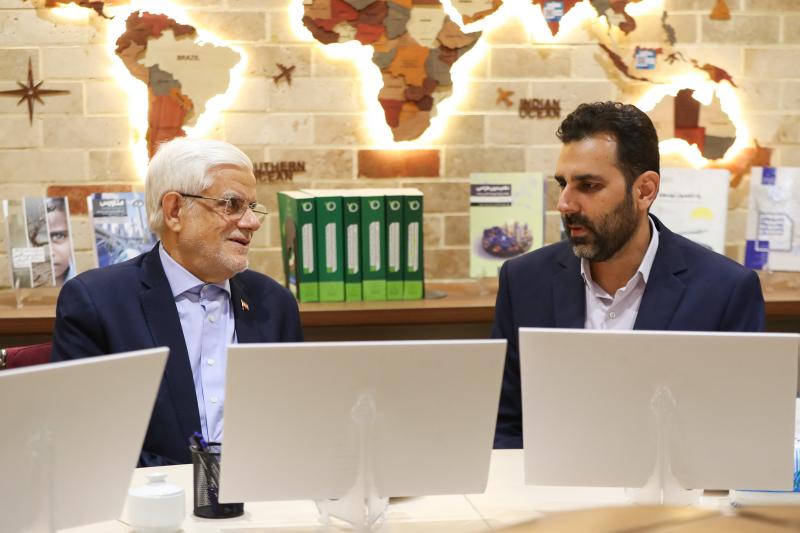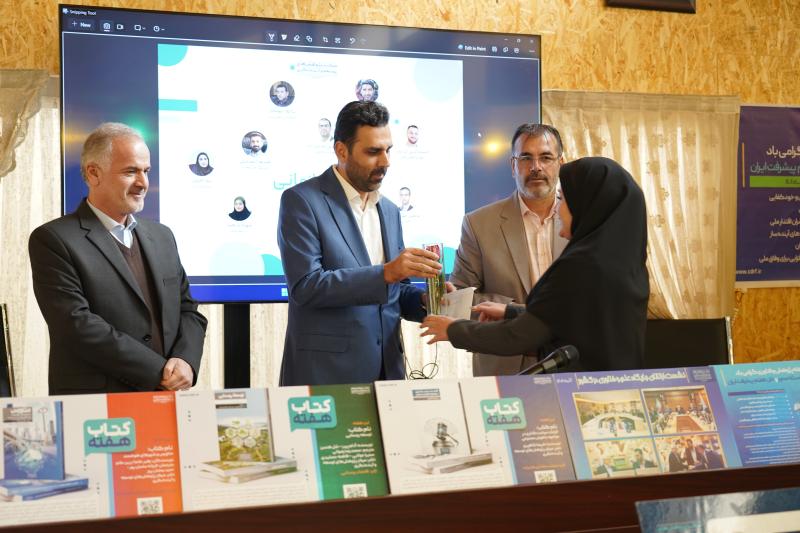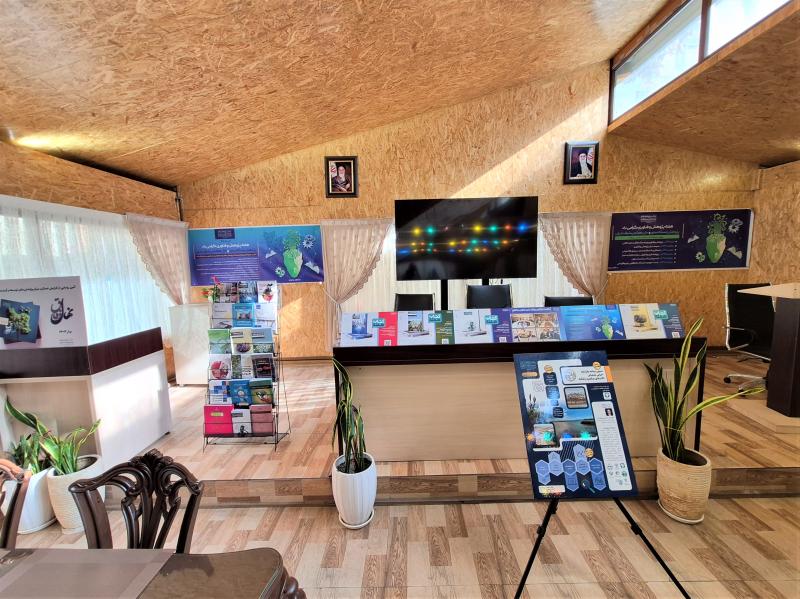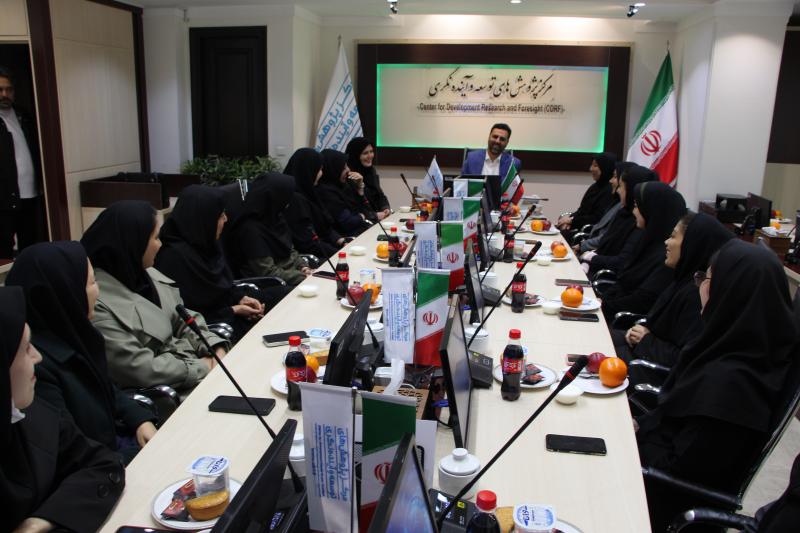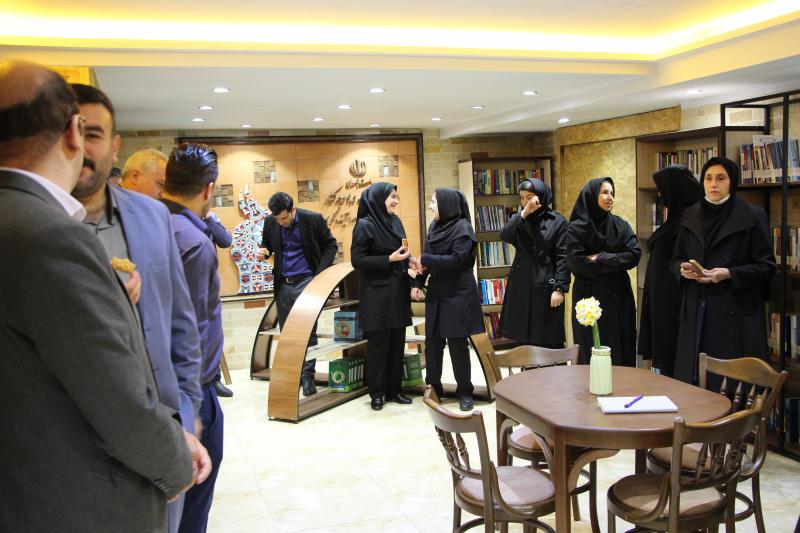
-
بررسی آییننامهها و دستورالعملهای برنامه هفتم پیشرفت
-
بررسی عوامل موثر بر افزایش تصادفات و تلفات جادهای و سوانح رانندگی و دادهکاوی تلفات انسانی
-
سازماندهی و بازآرایی فضایی آموزش عالی کشور
-
به روز رسانی سند ملی آمایش سرزمین
-
انجام مطالعات مناطق آزاد به عنوان نواحی پیشران اقتصادی کشور
-
اصلاح ساختار بودجه و پیاده سازی نظام یکپارچه مدیریت اطلاعات مالی دولت (IFMIS)
کلید واژه : Governance
تعداد اخبار : 38
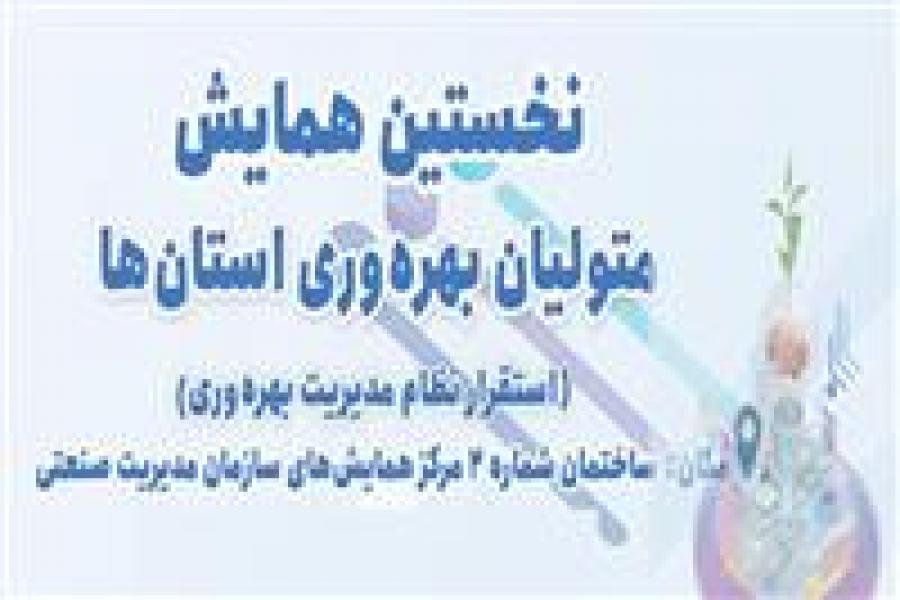
مرکز پژوهش های توسعه و آینده نگری در نخستین همایش «متولیان بهره وری استان ها» سازمان ملی بهره‌وری ایران مشارکت کرد.
سازمان ملی بهره‌وری ایران نخستین "همایش متولیان بهره وری استان ها" را در تاریخ ۱ بهمن ۱۳۹۸ در محل برگزاری همایش های سازمان مدیریت صنعتی، با مشارکت مرکز پژوهش های توسعه و آینده نگری برگزار کرد.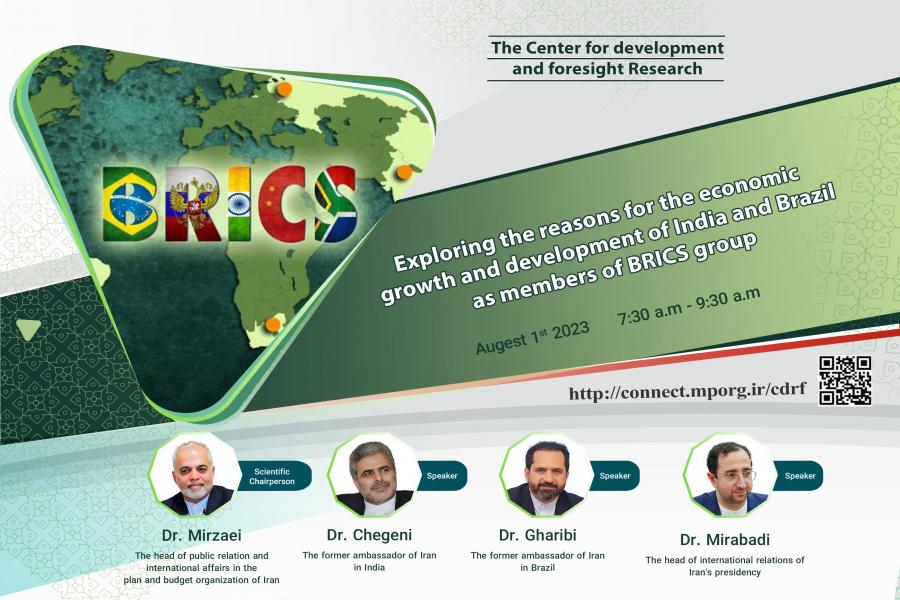
The private sector is the driving force of the BRICS countries’ economic development
The specialized conference of “Exploring the reasons for the success of the development plans of the BRICS countries; with a focus on Brazil and India” was held. It was stated that the private sector is considered as the driving force of economic development in Brazil and India. Also, it was mentioned that utilizing the economic development experience of Brazil and India would be a pivotal factor for the development of Iran’s economy.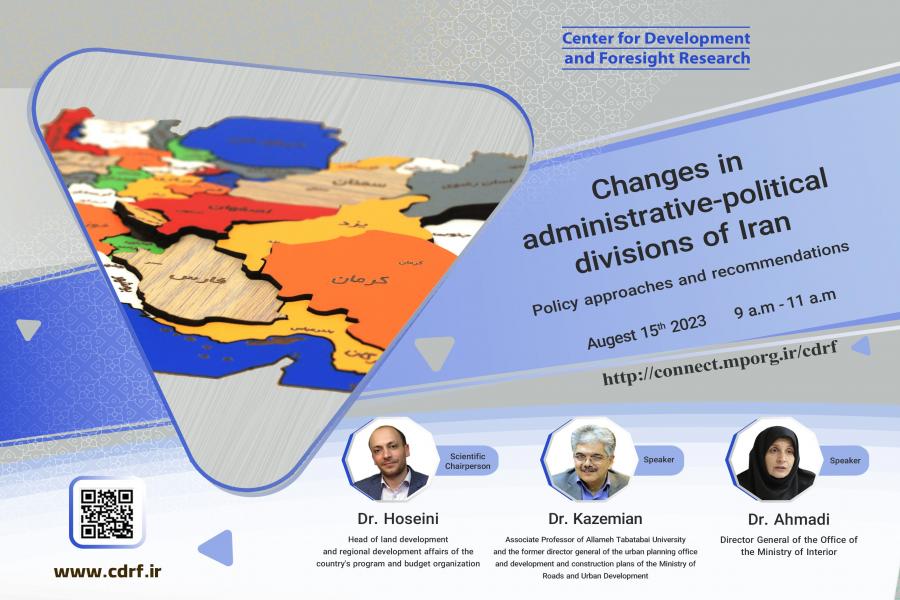
National Land Use Plan: The Key to Balanced Development and Budget Resource Allocation
The scientific-specialized conforence of "Transformations in the Administrative-Political Divisions of Iran: Approaches and Policy Recommendations" was held. .jpg)
CDRF Conference Discusses Planning-oriented Governance for Water, Food, and Farmer's Livelihood Security
The Center for Development Research and Foresight (CDRF) held a conference on planning-oriented governance for water, food, and farmer's livelihood security. The conference speakers discussed the importance of agriculture in land use planning, the three pillars of food security, and global challenges to food security. They also defined land use planning and food sovereignty, and emphasized the importance of sustainable farming practices. The CDRF conference highlighted the critical role of agriculture and food security in land use planning. The speakers discussed the challenges to food security and the need for sustainable farming practices. They also emphasized the importance of empowering producers and consumers with control over the production, distribution, and consumption of food.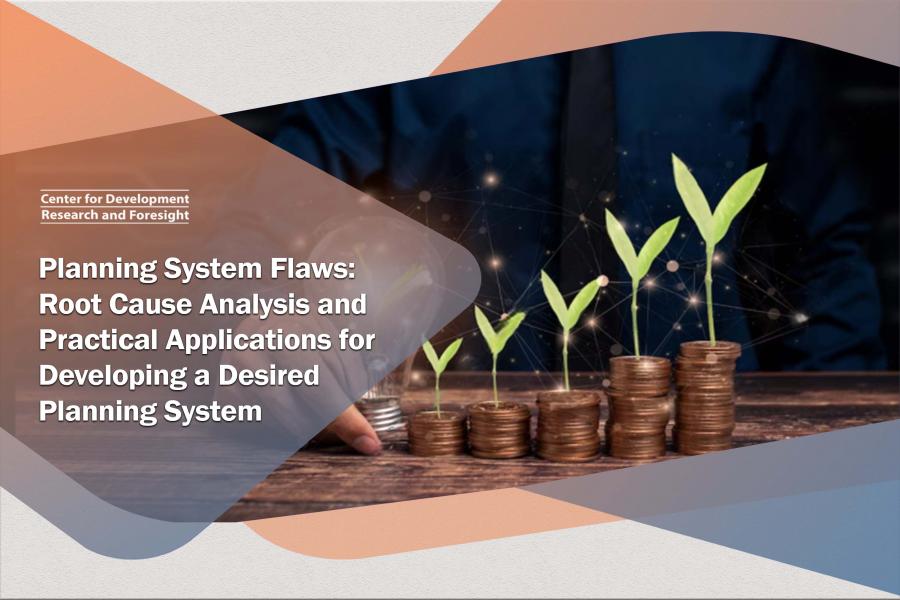
Planning System Flaws: Root Cause Analysis and Practical Application for Developing a Desired Planning System
The objective of this report is to comprehensively analyze and identify the underlying causes of deficiencies within the planning system of the country. The report examines the development programs implemented over the past 45 years, assesses the legal framework, and evaluates the objectives and performance of the planning system.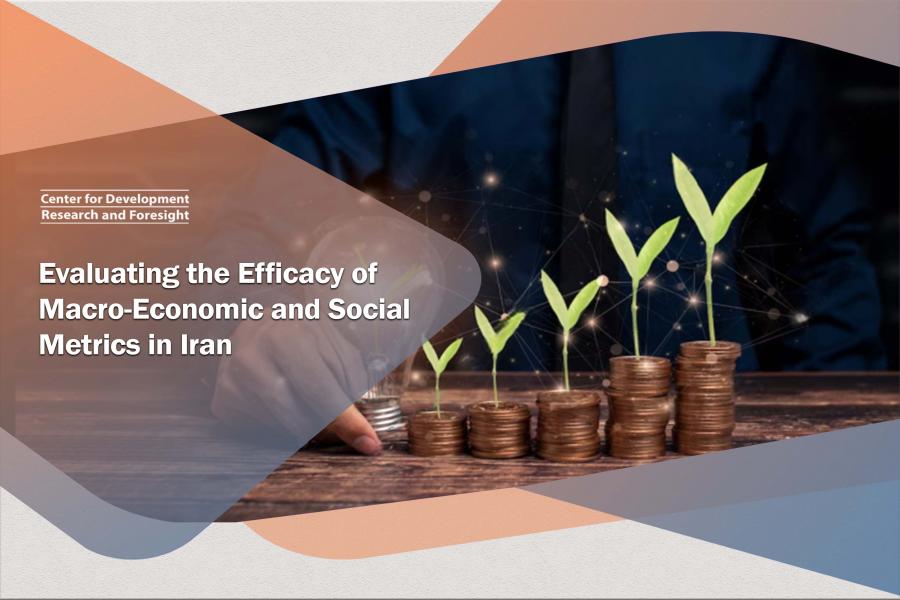
Evaluating the Efficacy of Macro-Economic and Social Metrics in Iran
The purpose of this report is to identify the root cause of the flaws in the planning system in the country. The report takes a general look at development programs in the last 45 years, assay the structure of laws, and examines the goals and performance of the planning system.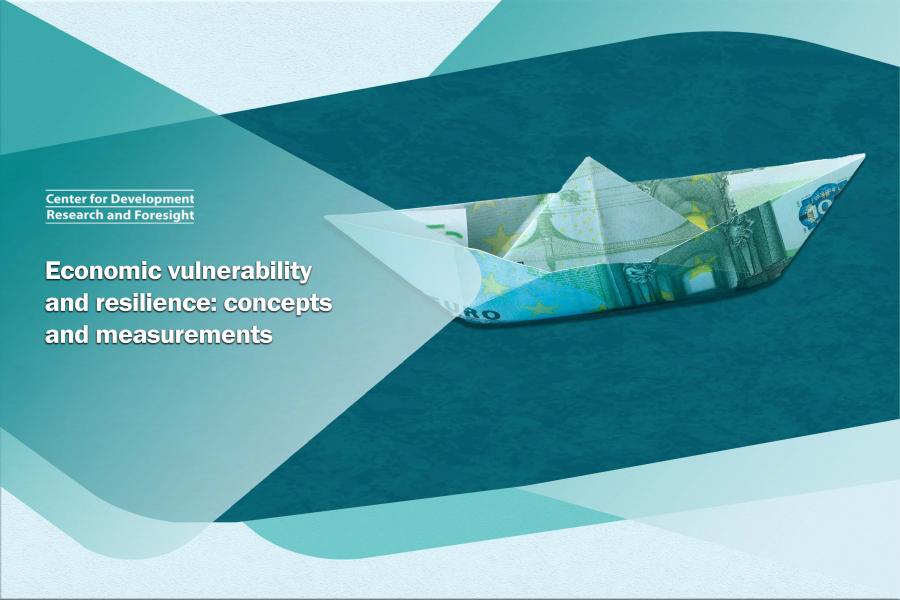
Economic Vulnerability and Resilience: Concepts and Measurements
This report delves into the critical concepts of economic vulnerability and resilience, with a specific focus on Iran's economic landscape. It seeks to address a noticeable gap in the Iranian economic literature concerning the foundations of economic resilience and the indicators for its measurement.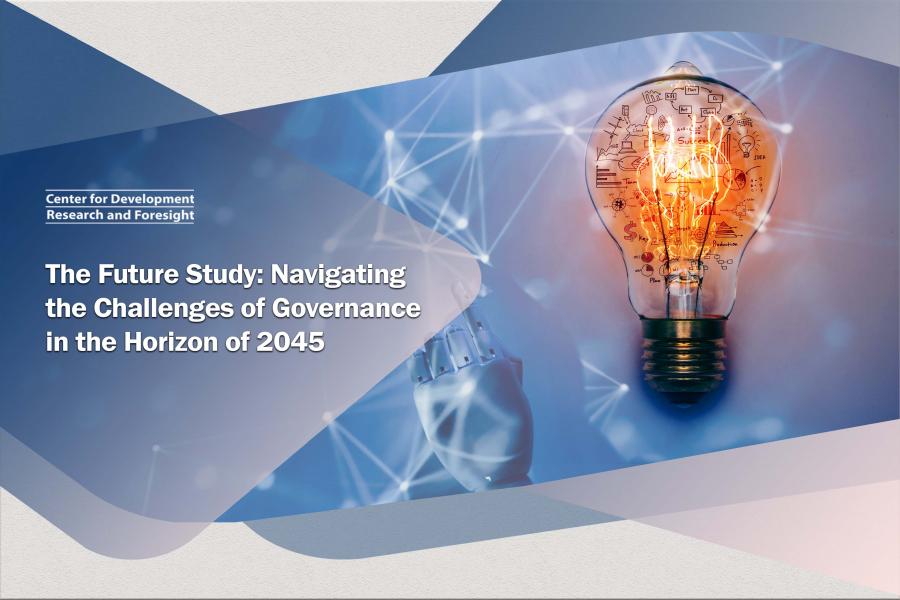
The Future Study: Navigating the Challenges of Governance in the Horizon of 2045
Spatial Planning has been characterized as a means of reclaiming land and asserting sovereignty, essentially establishing it as a category of governance and policy-making. As such, it represents a continuous evolution of governance approaches. The Spatial Planning document draws upon inputs from the political realm and public policies, culminating in a national document that serves as a public policy notification. Given that governance is the primary institution established by a society to overcome existing challenges and achieve desired outcomes, the government's utilization of the national spatial planning document fulfills a distinctly governance-oriented function. This functional affinity necessitates careful consideration of governance processes when selecting tools, including the national spatial planning document, for long-term use.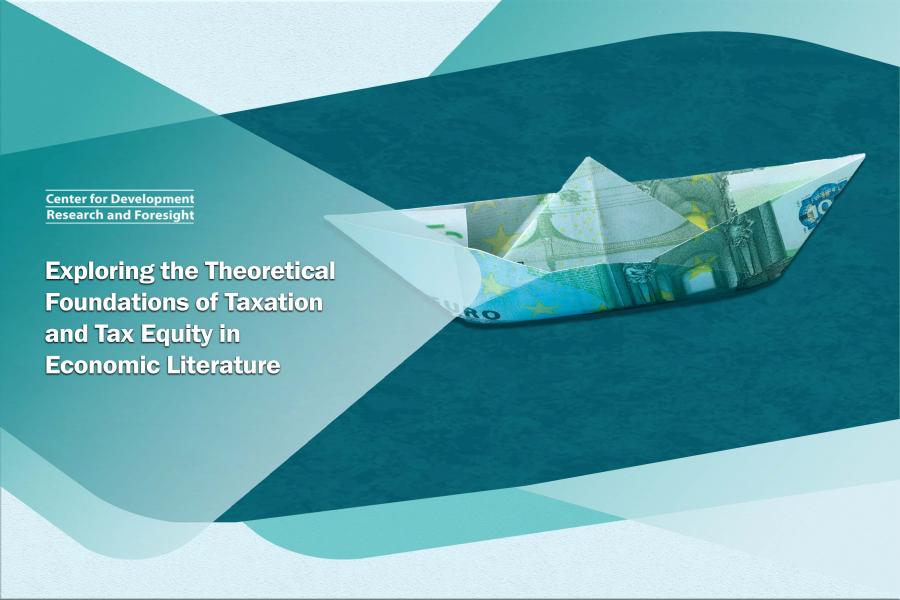
Exploring the Theoretical Foundations of Taxation and Tax Equity in Economic Literature
This report provides an in-depth exploration of the concepts of taxation and tax equity within the context of economic literature, illuminating the pivotal role of value judgments and assumptions in shaping tax policy and fairness. It underscores the notion that tax equity is predicated on specific assumptions such as the diminishing marginal utility of income and a universal utility function for all taxpayers. Acceptance of these assumptions lays the groundwork for advocating a fair tax system, whether proportional or progressive.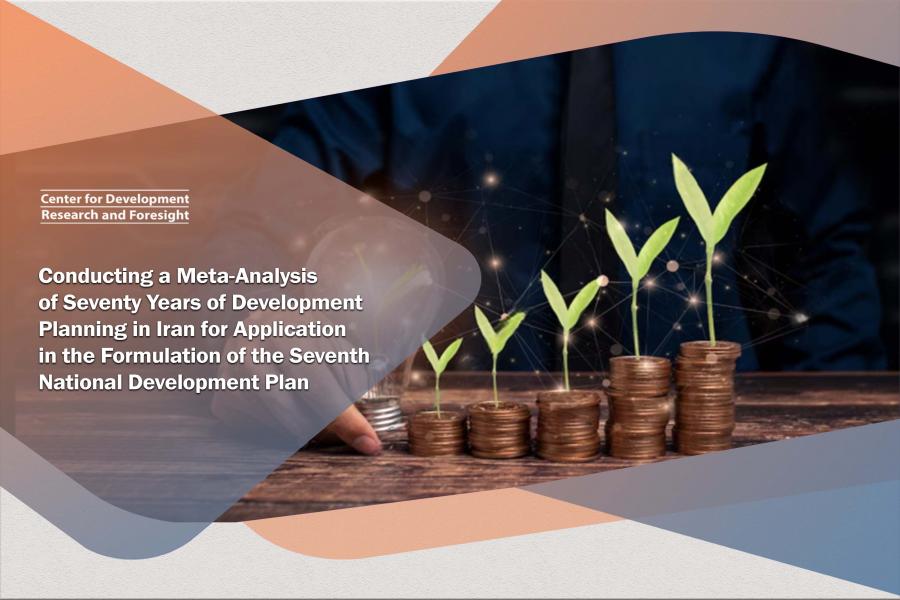
Conducting a Meta-Analysis of Seventy Years of Development Planning in Iran for Application in the Formulation of the Seventh National Development Plan
The development plan in Iran has been shaped by the evolution of the plan itself, following an established planning procedure. A crucial factor for successful planning is the establishment of a shared understanding and consensus on regulations, which serve as a blueprint for the content and structure of the plan among policymakers and planners. Given the importance of this issue, and recognizing that the formulation of regulations will be a pivotal step in advancing the seventh development plan, this study aims to delineate and clarify the regulatory elements of this plan.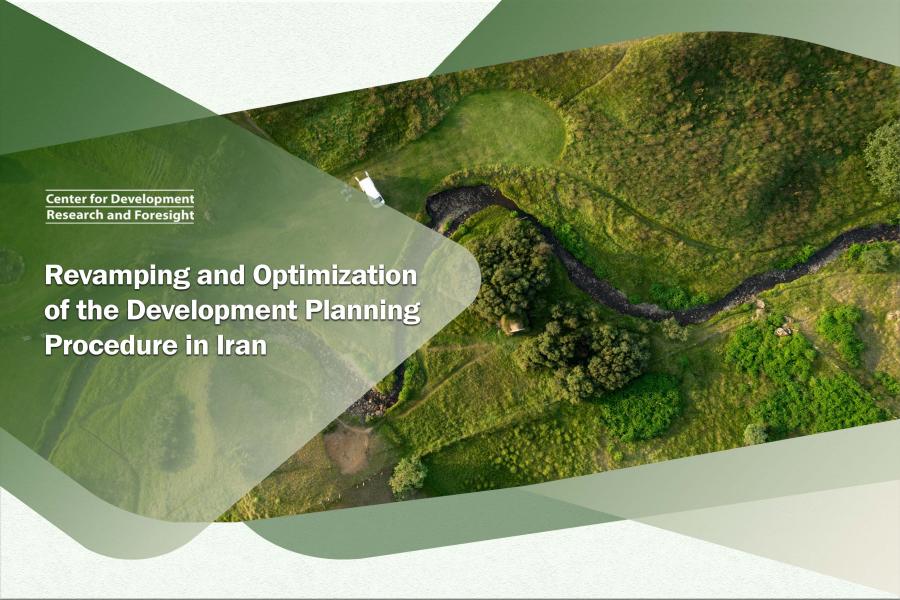
Revamping and Optimization of the Development Planning Procedure in Iran
An evaluation of Iran’s development programs across various periods reveals that most have not achieved the desired outcomes, with some exhibiting a significant performance gap relative to their stated goals. In certain instances, the substantial discrepancy between performance and objectives underscores the failure of planning within the country. Consequently, the shortcomings of planning in Iran have piqued the interest of numerous scholars and academics. The findings of these studies suggest that some plan failures can be attributed to structural deficiencies in the country’s planning system, while others are related to the political and economic issues that govern the formulation and implementation of the plan. In response to these shortcomings, proposals have been put forth to enhance programs within the country. These enhancements include utilizing key cores, rolling planning, or eliminating medium-term plans and focusing on aligning one-year plans with long-term plans.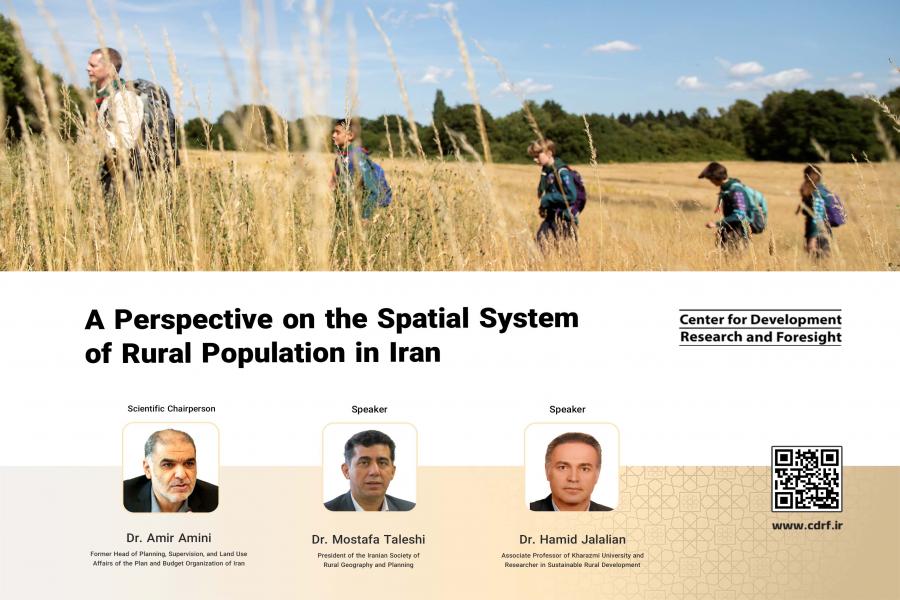
Exploring the Spatial Structure and Characteristics of Rural Population in the Country
Given the significance of the subject and the rural microsystem's role in shaping Iran's broader land area macro-ecosystem, an initial assessment of rural areas based on selected macro-social, economic, physical, and institutional indicators reveals that this microsystem faces obstacles in fulfilling its intended role in the national development landscape. These challenges have negatively impacted the rural system's vitality due to their cascading effects.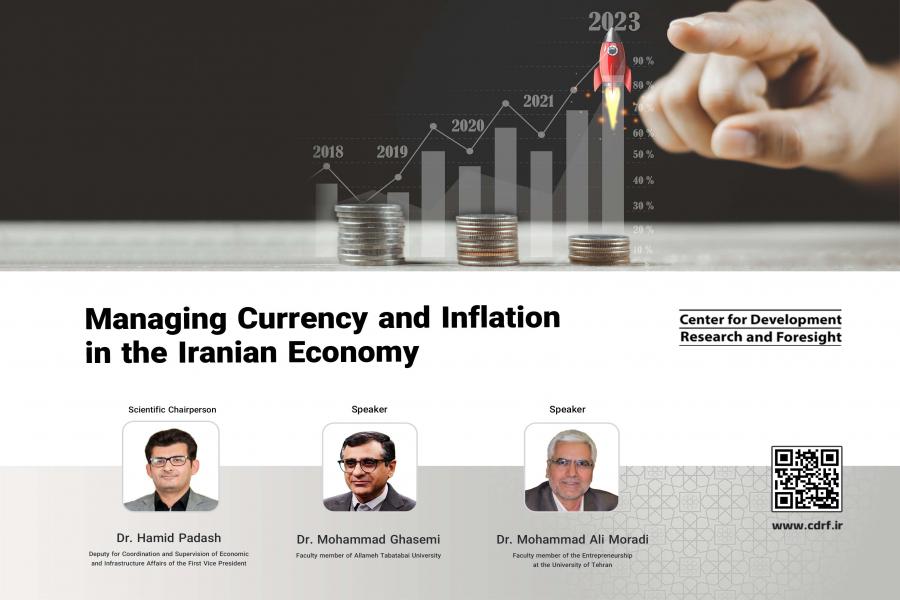
Exchange Rate and Inflation Policies in Iran's Economy
Inflation and exchange rate fluctuations have been persistent challenges in Iran's economy for several decades, leaving policymakers grappling with these issues. Double-digit inflation rates and currency shocks have become almost commonplace, characterizing the country's macro-economy for nearly half a century. However, in the past five years, these two issues have exacerbated Iran's economic situation, leading to unprecedented levels of inflation and exchange rates. Addressing inflation has become a priority in the country's policymaking, as reflected in the current year's slogan.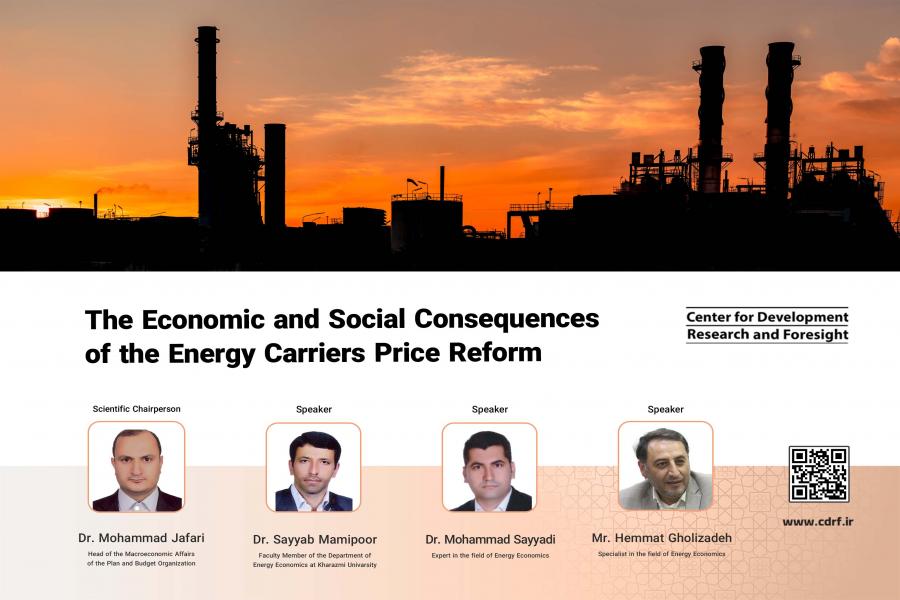
The Economic and Social Consequences of the Energy Carriers Price Reform
Given the significant role of energy in Iran’s economy, the pricing of energy carriers, particularly gasoline, has always been a critical factor in the implementation of government policies and the overall economy of Iran. The Energy Subsidy Reform policy and the appropriate pricing method have consistently posed challenges, with various governments grappling with economic, social, and environmental challenges in gasoline price reforms.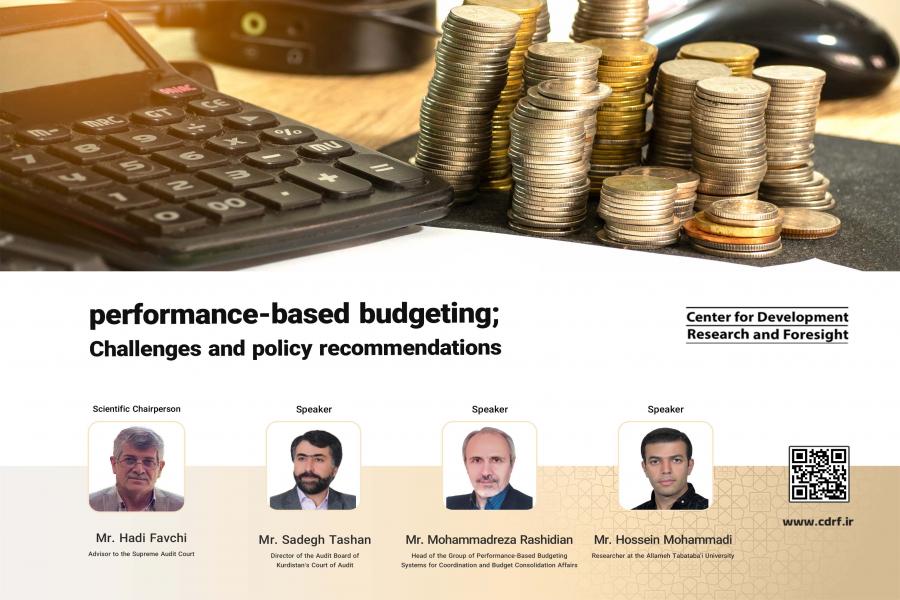
performance-based budgeting; Challenges and policy recommendations
Performance-based budgeting fosters optimal resource utilization, enhances productivity through efficiency improvement, facilitates the achievement of goals, aligns strategic objectives with operational plans, and promotes transparency and accountability. When properly implemented and scientifically managed, this type of budgeting lays the groundwork for good governance and facilitates the realization of societal values.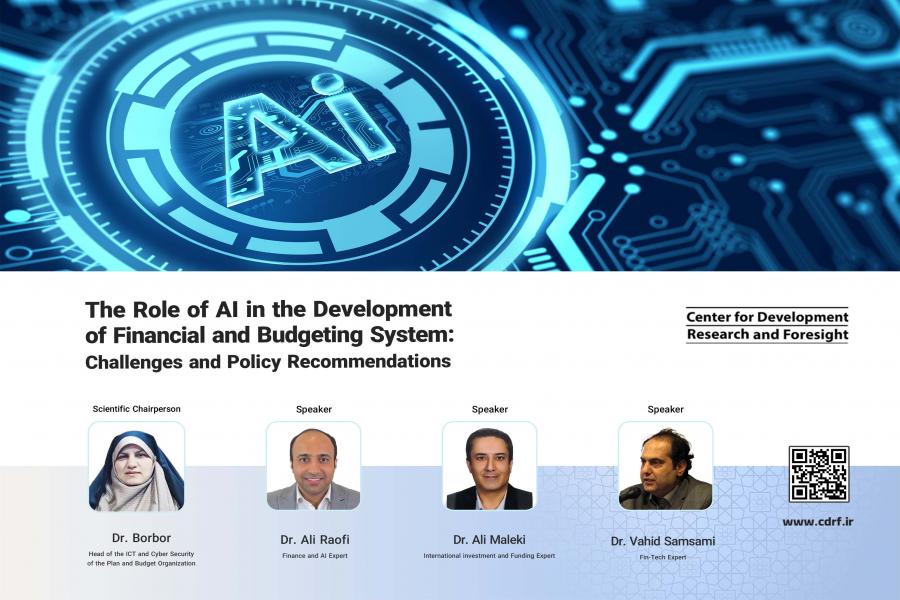
Artificial Intelligence and its role in the Development of Financial Systems and Budgeting
Artificial intelligence (AI) has emerged as a transformative technology, extensively studied and developed over the past seven decades. Its growing prominence has rendered it an indispensable tool for governments worldwide. While AI's potential to enhance decision-making power and quality remains an ongoing area of inquiry, its application in certain policy domains, such as public budget drafting, has received limited attention. This paper delves into the untapped potential of AI in budget allocation, a critical aspect of financial policy.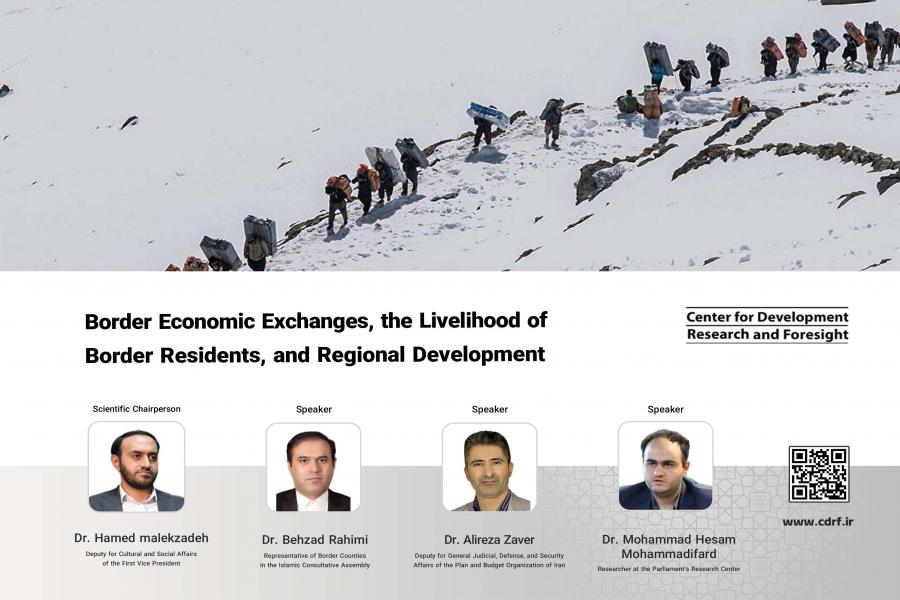
Border Economic Challenges: The livelihood of Residents and Regional Development
The government of Islamic Republic of Iran has long recognized the importance of harnessing the capabilities of the public sector to align with its strategic objectives. To effectively achieve this decentralization, local governance structures must be activated and integrated within the broader framework of national governance. A clear model and procedure for aligning various institutions under local and central governance is crucial for facilitating border economic exchanges. Addressing the existing challenges faced by border residents and leveraging the potential benefits of neighborhood relations require a comprehensive approach that transcends mere confrontation and intervention. Only through a well-defined model of cooperation and collaboration can the existing laws and plans be effectively implemented to improve the livelihoods of border communities and foster regional prosperity.
Maritime Development is a Key to Boast Economic Growth
The recent conference at the Center for Development Research and Foresight highlighted the growing importance of the maritime economy to the country's future. Experts and officials convened to discuss the potential of the seas and coasts to drive growth, create jobs, and address some of the country's long-term challenges.
The Role of Universities in the Governance and Development of the Country; The Duality of Research-Centric or Problem-Centric
The conference at the Center for Development and Foresight Research titled “The Role of Universities in the Governance and Development of the Country; The Duality of Research-Centric or Problem-Centric” addressed the role of universities in the governance and development of a country. It is stated that universities have four main responsibilities: educating and training specialized human resources, advancing the frontiers of knowledge, providing services to society, and promoting societal culture.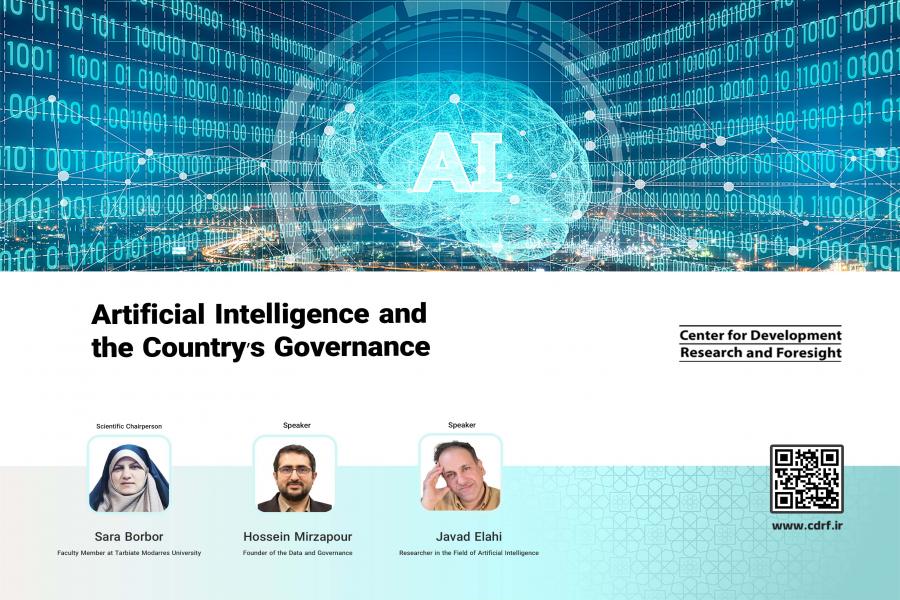
The Artificial Intelligence and the Country's Governance
The country's leading minds in artificial intelligence (AI) convened in specialized conference titled “The Artificial Intelligence and the Country's Governance” at the Center for Development Research and Foresight, Iran, tackling crucial questions about governing this powerful technology and harnessing its potential for good.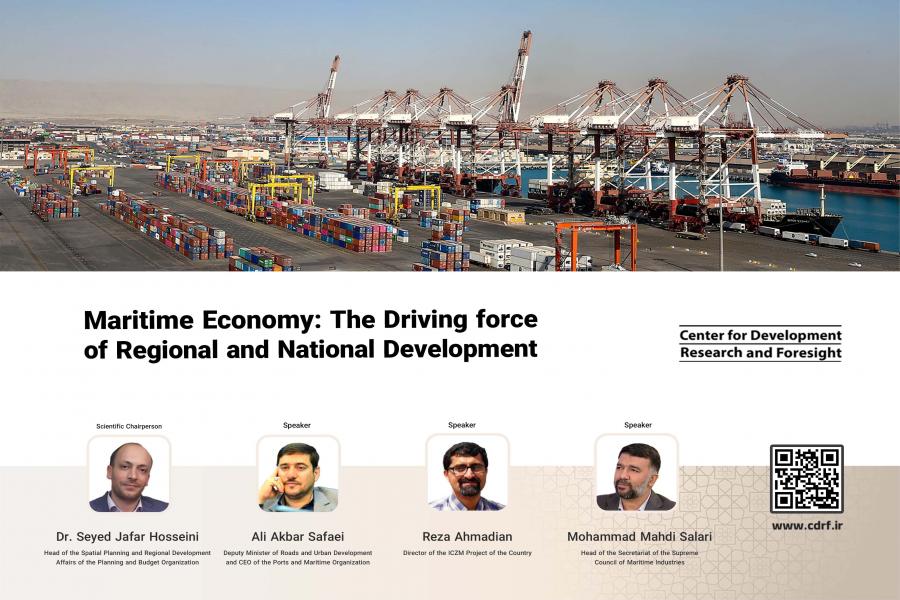
Maritime Development is a Key to Boast Economic Growth
The recent conference at the Center for Development Research and Foresight highlighted the growing importance of the maritime economy to the country's future. Experts and officials convened to discuss the potential of the seas and coasts to drive growth, create jobs, and address some of the country's long-term challenges.
The Importance of Data Mining in Financial Transparency
The recent conference at the Center for Development Research and Foresight brought together experts to discuss how data governance and mining can improve the country's budgeting process. The conference was part of an ongoing series aimed at improving budget transparency and efficiency.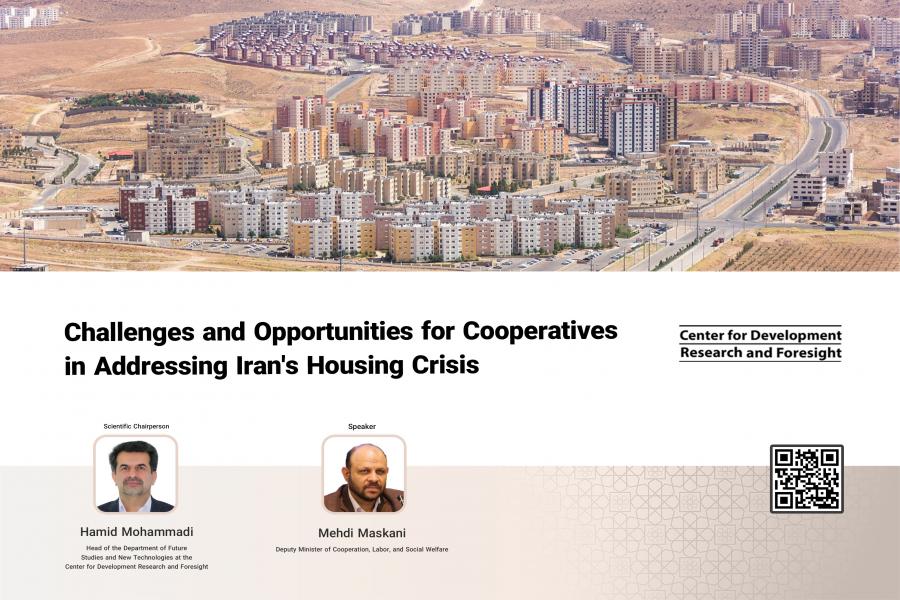
Challenges and Opportunities for Cooperatives in Addressing Iran's Housing Crisis
The recent conference of “Challenges and Opportunities for Cooperatives in Addressing Iran's Housing Crisis” at the Center for Development Research and Foresight brought together experts from various fields to address the critical issue of housing affordability in Iran. The conference highlighted the challenges faced by the Iranian housing market and explored potential solutions, particularly through the lens of cooperative housing models.
Unlocking Potential: Reforming Iran's Free Zones
The conference titled “Unlocking Potential: Reforming Iran's Free Zones” was held at the Center for Development Research and Foresight to discuss the performance of free zones in Iran. The conference was attended by stakeholders from the public and private sectors, including government officials, academics, and businesspeople.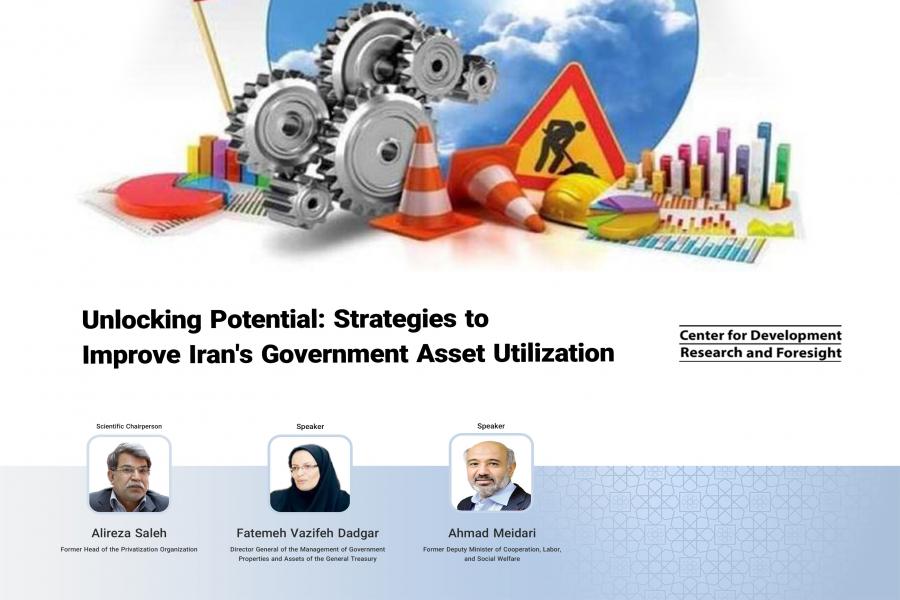
Unlocking Potential: Strategies to Improve Iran's Government Asset Utilization
In the conference titled “Unlocking Potential: Strategies to Improve Iran's Government Asset Utilization” at the Center for Development Research and Foresight aimed at addressing the challenges of managing government assets, Iranian officials discussed issues ranging from inefficient asset allocation to the need for legal reforms. The conference brought together experts from various sectors to explore strategies for maximizing the value of government-owned properties and resources.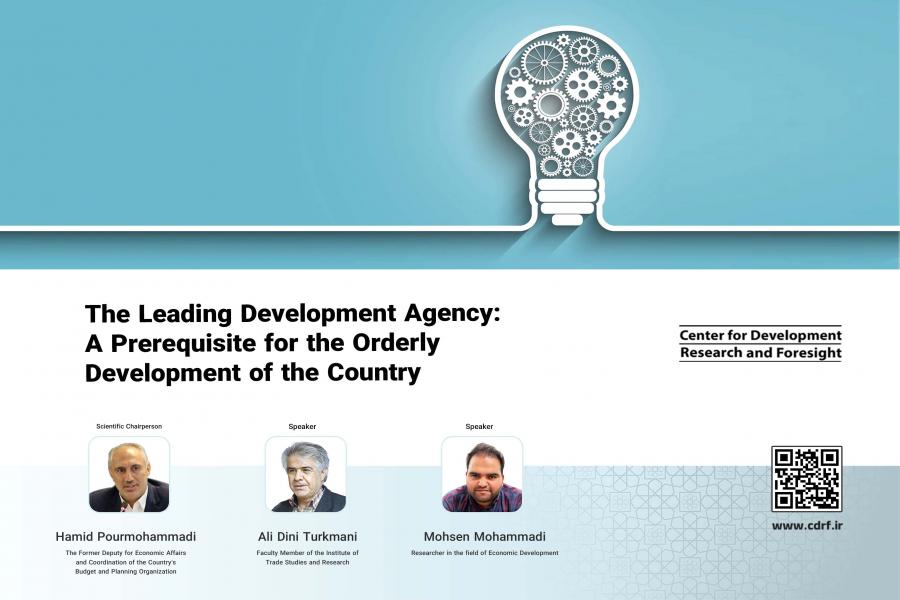
The Leading Development Agency: A Prerequisite for the Orderly Development of the Country
Iran might be looking to a new approach to development. The recent conference at the Center for Development Research and Foresight in tandem with the University of Tehran's Faculty of Governance titled "The Leading Development Agency: A Prerequisite for the Orderly Development of the Country" addressed the significance of a super agency with more power and a sharper focus than existing government bodies..jpg)
SMEs and Strategies to Overcome Barriers: The Role of Strategically-Aligned and Geographically-Proximate Countries
An international meeting held on April 24, 2024, at the Center for Development Research and Foresight, brought together experts to discuss the importance of small and medium-sized enterprises (SMEs) for economic growth and job creation, with a particular focus on the role of strategically-aligned and geographically-proximate countries. The meeting, titled "SMEs and Strategies to Overcome Barriers: The Role of Strategically-Aligned and Geographically-Proximate Countries," was led by Aidin Salamzadeh, the vice dean of the faculty of business management at the University of Tehran, who welcomed professor Galina Shirokova, the director of the Center for Strategic Entrepreneurship at HSE University of Saint Petersburg, Morteza Mohammadi Zanjireh, a faculty member at Imam Khomeini International University, and 17 university professors from St Petersburg University, Moscow State University, University of Calgary, and University of Notre Dame. 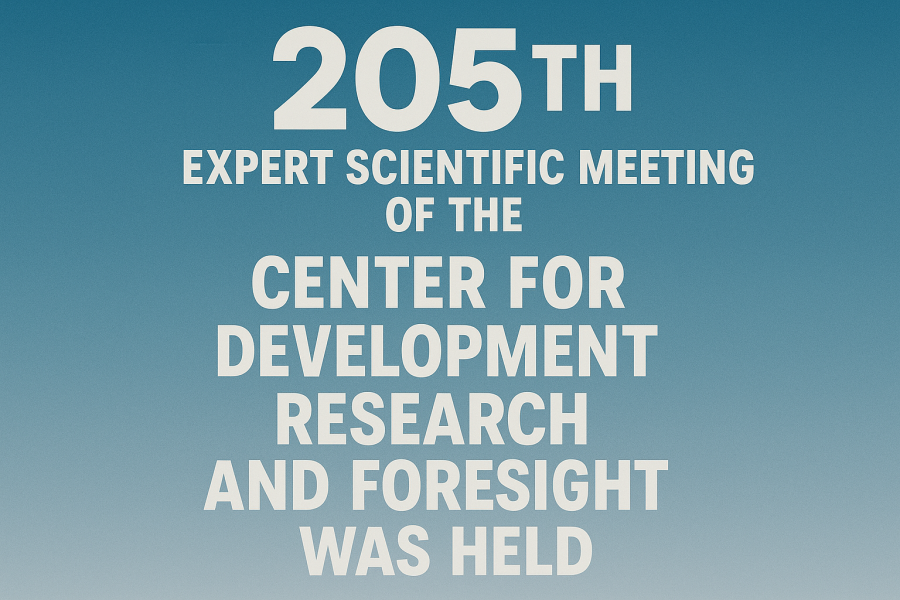
The 205th Expert Scientific Meeting of the Center for Development Research and Foresight (CDRF) was held
According to the Public Relations Office of the CDRF, the 205th Expert Scientific Meeting of the CDRF was held under the title 'Requirements and Challenges of Using the Public-Private Partnership Approach in Investment for Production'.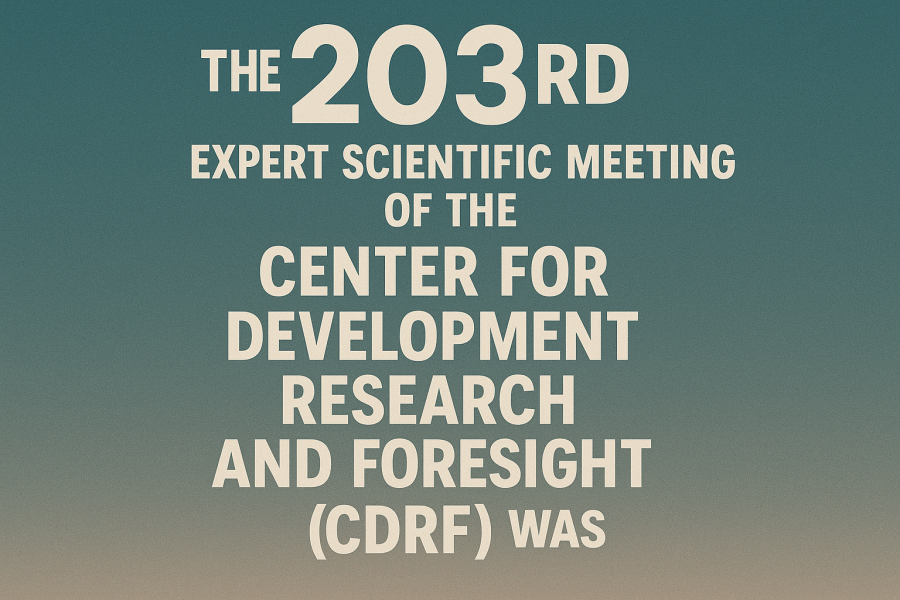
The 203rd Expert Scientific Meeting of the Center for Development Research and Foresight (CDRF) was held.
According to the Public Relations Office of the CDRF, the 203rd expert scientific meeting of the CDRF was held under the title “Analysis and Review of the Budget of State-Owned Enterprises in 1404 (2025-2026).” In this meeting, Mehdi Bagheri, former Head of State-Owned Enterprises, the Civil Servants Pension Fund (CSPF), and Public Institutions Affairs of the Plan and Budget Organization of the Islamic Republic of Iran (PBO), served as the scientific chair of the meeting. Additionally, Hassan Khoshpour, former Head of State-Owned Enterprises Affairs of the PBO, and Mohammad Nasir Arab Nosratabadi, Head of the State-Owned Enterprises and Non-Governmental Public Institutions Group of the PBO, participated as the keynote speakers, presenting their viewpoints.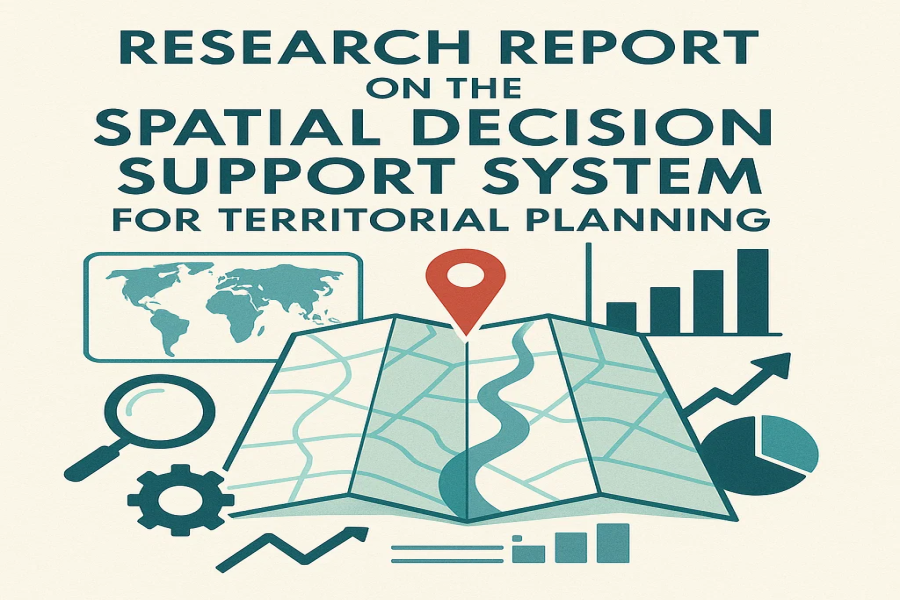
Research report on the Spatial Decision Support System for Territorial Planning
The Research Group on Land Use Planning, Regional Development, and Balance at the Center for Development Studies and Foresight has published its latest research report titled: "Spatial Decision Support System for Territorial Planning." The executive summary of the report states: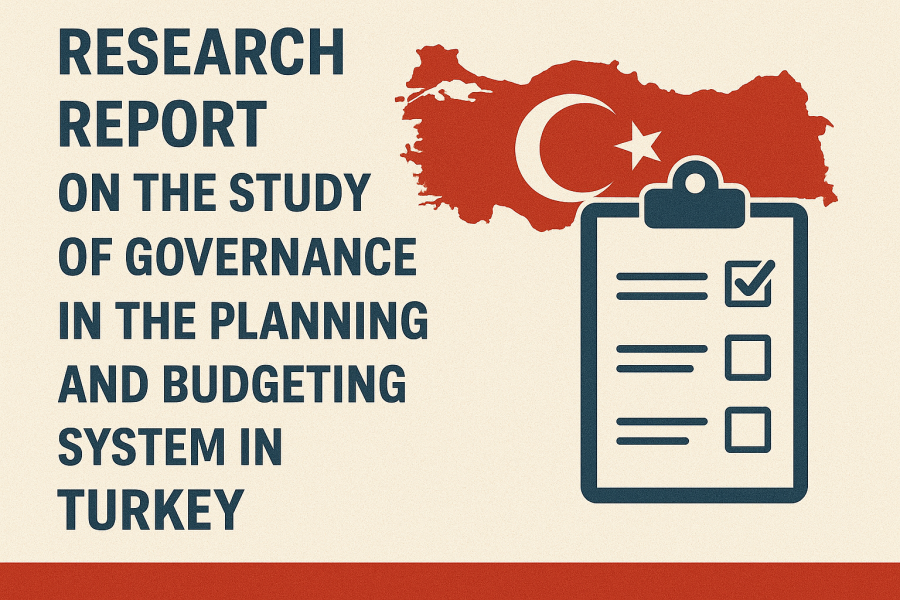
Research report on the Study of Governance in the Planning and Budgeting System in Turkey
According to the Public Relations of the Center for Development and Foresight Research, the Research Group on Modern Systems of Planning, Budgeting, and Modeling published a research report titled "Study of Governance in the Planning and Budgeting System in Turkey" in November 2024.
The 201st Expert Scientific Meeting of the Center for Development Research and Foresight (CDRF) was held.
According to the Public Relations Office of the CDRF, the eleventh session of the series entitled “The Future Outlook of Iran” and the 201st meeting of the CDRF was held under the title “A Critical Assessment of the Vision of the Islamic Republic of Iran in the Horizon of 1404 AH.”.png)
The 198th Expert Scientific Meeting of the Center for Development Research and Foresight (CDRF) was held.
According to the Public Relations Office of the CDRF, the eighth session of the “Future Vision of the Islamic Republic of Iran” series and the 198th meeting of the CDRF was held under the title “Oil in Iran’s Vision.” In this meeting, Ali Agha-Mohammadi, Head of the Economic Group of the Office of the Supreme Leader and non-ex officio member of the Expediency Discernment Council of the System, served as the scientific chair of the meeting. Additionally, Asghar Ebrahimi Asl, former Deputy Minister of Oil during the ninth, tenth, and eleventh administrations, and Mohammad Reza Akbari, faculty member at the Petroleum Faculty of Amirkabir University of Technology and Head of the Governance Working Group for General Energy Policies of the Expediency Discernment Council of the System, participated as keynote speakers, presenting their viewpoints.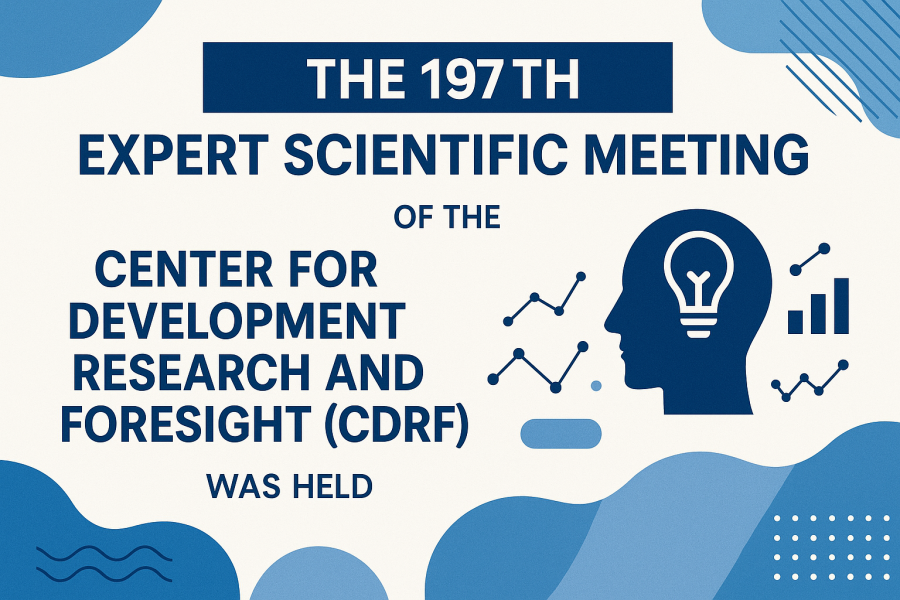
The 197th Expert Scientific Meeting of the Center for Development Research and Foresight (CDRF) was held.
According to the Public Relations Office of the CDRF, the seventh session in the series of meetings titled “The Future Vision of the Islamic Republic of Iran” and the 197th meeting of the CDRF was held under the title “The Role of Technology Development in Iran's Civil Vision.”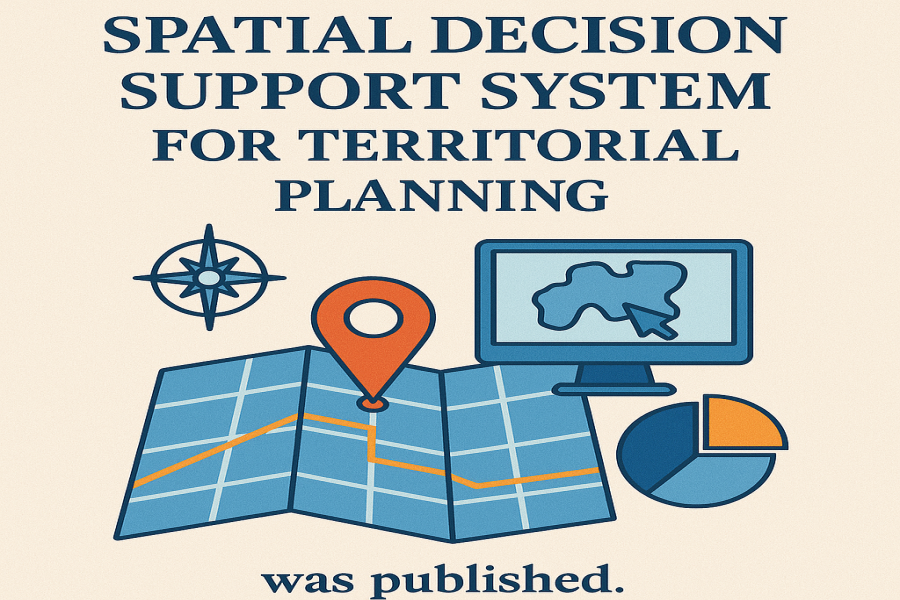
The research report titled “Spatial Decision Support System for Territorial Planning” was published.
The Territorial Planning, Development, and Regional Balance Research Group of the Center for Development Research and Foresight (CDRF) has published its latest research report entitled “Spatial Decision Support System for Territorial Planning.” The executive summary of this research report states: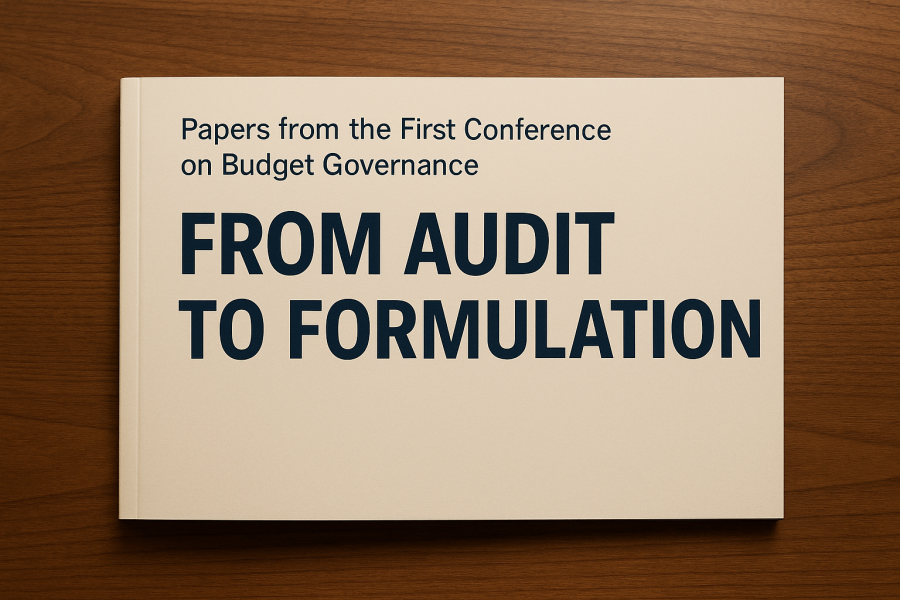
The collection of papers from the First Conference on Budget Governance: From Audit to Formulation was published.
According to the Public Relations Office of the Center for Development Research and Foresight (CDRF), the CDRF has published the collection of papers accepted by the review committee for the First National Conference on Improving the Budgeting Process in Iran, titled “Budget Governance: From Audit to Formulation.”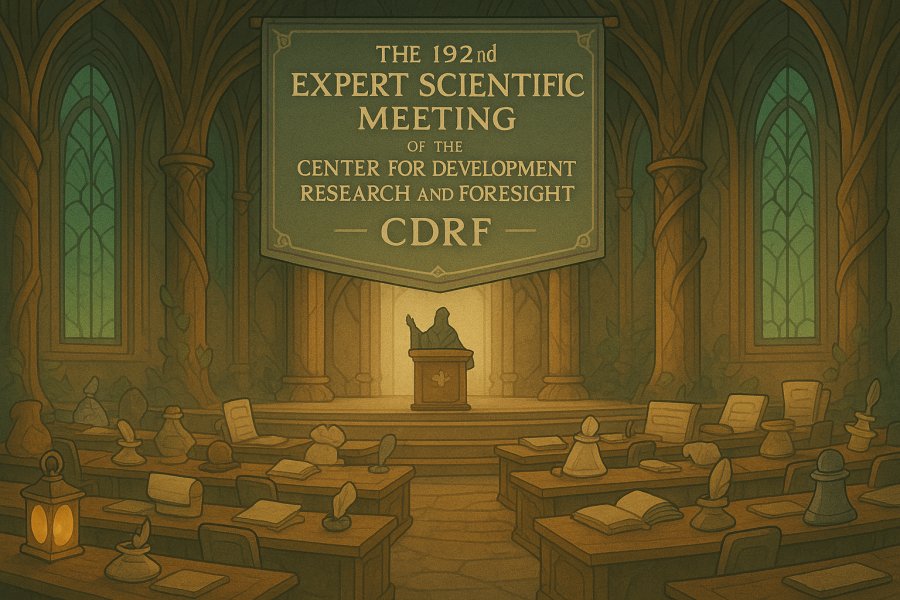
The 192nd Expert Scientific Meeting of the Center for Development Research and Foresight (CDRF) was held.
According to the Public Relations Office of the CDRF, the 192nd Expert Scientific Meeting of the CDRF was held under the title "Wildfires in the Zagros Forests: Challenges and Policy Recommendations." In this meeting, Farrokh Masjedi, Special Representative of the Head of the Plan and Budget Organization of the Islamic Republic of Iran (PBO) for the Preservation and Restoration of the Zagros Forests, served as the scientific chair of the meeting. Additionally, Mehrdad Akbarian, Representative of the Natural Resources and Watershed Management Organization, and Reza Siah Mansour, a faculty member at the Agricultural and Natural Resources Research and Education Center of Lorestan Province, participated as keynote speakers, presenting their viewpoints.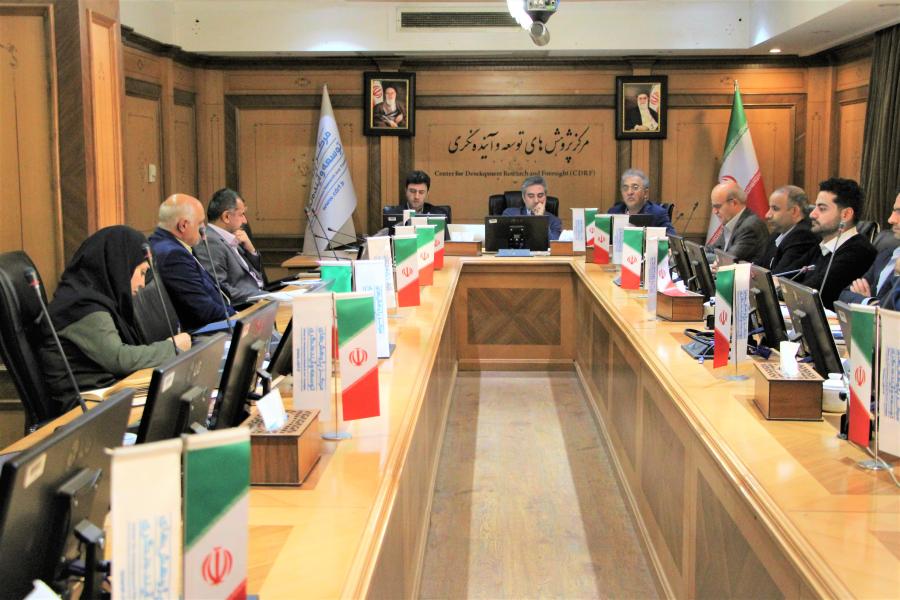
هم افزایی میان حاکمیت و مراکز علمی تنها راه تضمین تولید دانشی معتبر و بی طرفانه است
در دویست و سی‌امین نشست علمـی تخصّصـی مرکز پژوهش‌های توسعه و آینده‌نگری مطرح شد: افکارسنجی به‌مثابه شریان حیاتی میان دولت و جامعه است و توسعه پایدار بر پیوند دوسویه دولت کارآمد و جامعه قوی استوار است. دولت باید استانداردهای کیفی را تعیین کند و از طریق کمک های مالی از مراکز تحقیقاتی مستقل حمایت نماید. هم‌افزایی میان حاکمیت و مراکز علمی تنها راه تضمین تولید دانشی معتبر و بی‌طرفانه است.
امروز : سه شنبه، ۲۸ بهمن ۱۴۰۴

